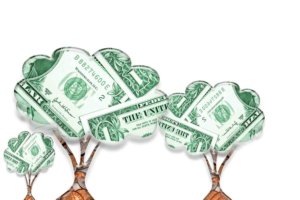Contrary to what some may believe, economics does not simply deal with currency or finances. “Economics is the study of how people choose to use resources,” states the AEA (American Economic Association). The AEA adds that these resources can come in many forms, including land, labor, taxes, manufactured goods, natural resources and even time.
The field of economics looks at how both how individuals and groups consume resources; as part of an Economics Degree, microeconomics versus macroeconomics courses would make this distinction between a person and an aggregate.
Economics also looks at quality of life or functioning. “Well-being includes the satisfaction people gain from the products and services they choose to consume, from their time spent in leisure and with family and community as well as in jobs, and the security and services provided by effective governments…” adds the AEA. “…Economists seek to measure well-being, to learn how well-being may increase over time, and to evaluate the well-being of the rich and the poor.”
There are various economic fields, such as microeconomics and macroeconomics, but also health, law, education, welfare, financial, international, industrial, public policy, demographic, labor, environmental, natural resources, urban, rural, development, business and more. As a result, those who complete an economics degree, depending on their interests and specialty, pursue a wide range of careers.
Why Pursue an Economics Degree?
While researching schools and their economic degree programs, talk to an academic advisor to find out about what their programs offer. Ask questions like:
• What types of jobs have your graduates secured?
• Do you incorporate any internships or real-word experiences into the program?
• Which electives or concentrations should I pursue? (depends on your interest)
• Does your school have a transfer agreement with other schools? (in the case of transferring Associate degree credits to a Bachelor degree)
The field of economics is generally considered a social science which allows you to increase your knowledge in several key areas, including behavioral science, mathematics, business, policy, finance and statistics. “Employers and many graduate programs look favorably upon applicants with an Economics degree because of the critical thinking and information processing skills learned and practiced in the sequence of economics courses taken by majors,” states the University of Maryland’s Department of Economics. “After graduation ECON majors often pursue careers in business, banking and finance, government, law, or international relations, while others go on to graduate study in a wide range of disciplines.”
There are numerous options for economics degrees, depending on what stage you are in your academic and professional life. If you are going to college or university for the first time, you might consider an Associate or Bachelor degree and go on to work in entry-level or mid-level positions or to graduate school. Completing a Masters in Economics can lead to senior level and more specialized positions with companies, governmental agencies and consulting firms and a Ph.D can lead to high-level research positions, executive economic roles and professorships.
You often have the choice of completing an Economics degree as part of a Science or Arts Faculty, depending on if you want to focus more on analysis versus liberal arts. Additionally a number of educational institutes offer the option of completing your degree completely online to cater to those who need a flexible academic schedule.
Economics Degrees
| Degree Level |
Approximate Length |
Curriculum |
Graduation Can Lead to… |
| Associate Degree in Economics |
2 years |
Some courses may include:
|
|
| Bachelor Degree in Economics |
4 years |
Some courses may include:
|
Such careers as:
Higher Education:
|
| Masters Degree in Economics |
2 years |
The curriculum generally includes a combination of courses, seminars and a research project or thesis in a specialized area of Economics. | Such careers as:
Higher Education:
|
| Ph.D. in Economics |
5+ years |
A Ph.D program generally involves formal coursework and comprehensive exams, workshops, seminars, research papers and an original, major research dissertation. | Such careers as:
|
* Note that the information in the table above is just a general guideline. Curriculum and career paths may vary by student, educational institution and/or employer. Career opportunities exist in a range of sectors including corporate, banking, consulting, government and policy, academic, trade, insurance, non-profit and more.




